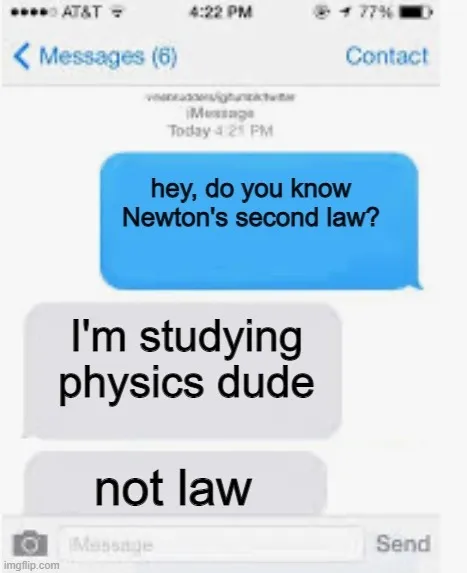Learn to understand
You know what can result if you say words that cannot have meanings. Symbols take on a life of their own, and mysticism is born in someone who seeks meaning.
With these words, Prof. Jerzy Mioduszewski from Poland, sums up the fact that schools talk about sets without explaining what they are. That’s pretty general summary, isn’t it? This can also be used for many other situations, e.g. seemingly simple questions that children ask their parents. At school — as in life — you had to take on faith many truths that came from your main or temporary teachers. How to understand physics without knowledge of calculus? It’s not possible. You can't understand it, but you can learn physics. Just like you can learn set theory from mathematics. The lack of inquisitiveness and willingness to get to the point of the matter gives hope that we will survive this period in relative mental health. You can move this problem in a state of limbo… only to come back to it years later and justify it for your own internal consistency. Or simply state that you do not need to understand it.

The forest
Everyone is subject to the laws of physics, but not everyone needs to know them. Using a computer does not require advanced IT knowledge. But not everyone is patient enough, especially when curiosity is aroused and it is hard to postpone an issue. Even if you need time to understand it, you want to start now. It doesn't matter if the problem is with prime numbers, life after death, the stages of pencil production, or where the paper comes from. The farther you go, the less you know. Sometimes you can feel like a rifleman from a painting by Caspar David Friedrich. The multitude of trees overwhelms… but at the same time it satisfies the dose of danger and risk necessary for development. Each forest can be explored in two ways — either by diving into its depths or by examining its edges. Vertical thinking or horizontal thinking. The essence, however, is deep.

The experiments of the last decades have reduced the teaching of mathematics into pedanticity and verbalism. Because the roughness of mathematics often encourages to master it verbally. Pedanticity gives a substitute for understanding, comfortable self-deception. Another effect of recent experiments is the replacement of skills with knowledge, because the knowledge can be learned quantitatively. And yet, solving a task or problem on your own in mathematics takes us immeasurably further than learning ready-made solutions, even if there are so many of them that they could suffice for any occasion in life.
Growing in mathematics requires a lot of care
Well… in mathematics as in life. Isn't there an attempt to justify the wisdom of life with, for example, a broad philosophical education? Life also gives us the tasks to be solved and reading volumes of their solutions (in a given philosophical school) is not the same as thinking about them independently. Generally, understanding mathematics — according to Prof. Mioduszewski — is not a momentary delight, a temporary need to adopt a some domain of it.
You have to be brought up in it. (…) Growing in mathematics requires a lot of care. On the other hand — not understanding mathematics is never true. Someone who says that, just got lost in mathematics at some point in his life.
Mathematical objects do not impose themselves on anyone with their existence. They exist in our mind and it takes some effort to root them and effort to keep them there. The immutability of the properties of mathematical thinking made that certain principles of education in mathematics entered the canon: grading difficulty, practicing skills, promoting the formation of ideas and then subjecting them to the rigor of logic. A lesser-known principle is not to impose on anyone with an overall structure, that should be individual. In the list of rules, it is easier to find negative formulations, because most often we know first of all about how not to do something.
The structure of mathematics education should remain individual. I think it is obvious, but still difficult to implement. We are levelling-down at school; more ambitious students are bored in lessons, waiting for lost in mathematics to catch up with the peloton. If the smarter ones are not willing to develop themselves or simply use this time buffer for other activities, they will have a time of frustration. Solving problems gives you positive emotions, makes you bolder to take on new challenges. Overcoming the obstacles is often similar in other fields. So it might be useful.
Referenes:
[1] J. Mioduszewski — Matematyka: wewnętrznie sprzeczna jedność ogólności i konkretu, Matematyka Społeczeństwo Nauczanie 8/1992.
Photos:
[1] self-made meme (on the basis of a similar one in Polish)
[2] — Caspar David Friedrich — The Chasseur in the Forest
